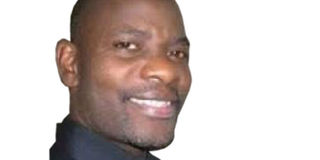Why Ugandans should hold all politicians accountable

Someone who read my article in Sunday Monitor last week criticising former presidential candidate Dr Kizza Besigye over what I called hypocrisy dubbed me a “guided Museveni missile”. I found his comment hilariously funny, but it did not surprise me one little bit.
In Uganda, it seems to me, criticising popular politicians is unacceptable. Popular politicians are uncriticisable. Criticism, many Ugandans seem to think, should be reserved for President Museveni and his cohorts.
But this kind of thinking, I think, is part of the reason our politics seldom, if ever, works for the general public and continues to work, for the most part, for politicians and those who are close to them.
We do not hold all politicians accountable. We cherry pick those who should be called to account. We tend to look at popular Opposition politicians as angels, people who are almost infallible—and focus our attention only on those who are in power.
While there are perfectly good reasons for us to target politicians who are in power and hurl verbal grenades at them, especially when they muck up things, we also need to hold accountable politicians who are aspiring for national leadership and will one day be wielding real power because those in power cannot rule for ever.
If, for example, those in power have no integrity to speak of, we should also scrutinise and dissect the integrity of those who are seeking to replace them.
Now let me be clear: Not many Ugandans have issues with Dr Besigye’s integrity. He has never been implicated in any scandal. All charges that have been brought against him by the regime, as he calls the current government, turn out to be ludicrously fake.
However, when Dr Besigye tells Ugandans—as he often does—that he has irrefutable evidence that he won the 2016 election, the right thing to do is for him to share that evidence and make it very public.
It makes his claims more credible, and he does not even have to call for an international audit of the election results, which he has done on several occasions.
Medical doctors and scientists (of whom Dr Besigye is one) work with evidence and facts, a fact Dr Besigye knows only too well. When we go to hospitals and consult doctors, they examine us and only prescribe drugs/medicine when they have carried out a proper diagnosis.
It is, therefore, surprising that Dr Besigye can keep evidence for years and refuse or fail to make it public. Of what use will it be after 2021, when the next election will be held? And when he is called to account over his actions, his supporters become angry.
It seems some of these supporters do not even listen to what politicians who have worked with Dr Besigye have been saying.
In October 2018, Gen Mugisha Muntu, leader of the Alliance for National Transformation (ANT) and former head of the FDC, like Dr Besigye, had this to say: “You all know that after the 2016 presidential elections, we had decided to contest the outcome as declared by the Electoral Commission. When we set about gathering our evidence, however, we found ourselves in a situation where we could not collect or locate over 9,000 DR [declaration of results] forms.”
Anyone who knows anything about elections in Uganda knows that it is impossible to prove you won an election (apart from local council elections) without DR forms. And you have to wonder: How did Besigye come to the conclusion that he won the election without the DR forms?
This question makes no sense to his supporters. It is not what they want to hear. Politics, after all, just like religion, does not sit comfortably with objectivity. It prefers subjectivity and relies heavily on emotion. You cannot, for example, tell a voter who likes Donald Trump that your president acts remarkably like a dingbat. They will not listen.
Some people support political parties because their parents and grandparents supported them. People support political parties whose policies and manifestos they know nothing about. The leaders of the political parties know this, but they do not care. They need support.
Uganda’s political house needs to be put in order. We have a government run by people who behave like political thugs. And the Opposition, which should be an alternative, is not attractive. Ask people who run the Netherlands Institute for Multiparty Democracy (NIMD) in Uganda. Here is what they have previously said: “Parties largely rely on the appeal of their leaders rather than the strength of their policies”—and “face internal divisions and lack accountability and internal democracy”.
But once you call these parties to account, you are instantly labelled a Museveni-guided missile.
The writer is a journalist and former Al Jazeera digital editor in charge of the Africa desk
[email protected]
@kazbuk


